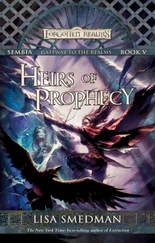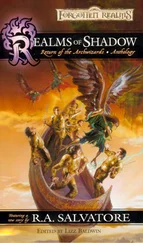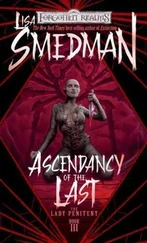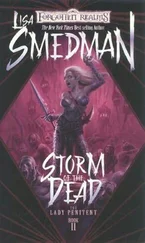Lisa Smedman - The Lucifer desk
Здесь есть возможность читать онлайн «Lisa Smedman - The Lucifer desk» весь текст электронной книги совершенно бесплатно (целиком полную версию без сокращений). В некоторых случаях можно слушать аудио, скачать через торрент в формате fb2 и присутствует краткое содержание. Жанр: Фантастика и фэнтези, на английском языке. Описание произведения, (предисловие) а так же отзывы посетителей доступны на портале библиотеки ЛибКат.
- Название:The Lucifer desk
- Автор:
- Жанр:
- Год:неизвестен
- ISBN:нет данных
- Рейтинг книги:3 / 5. Голосов: 1
-
Избранное:Добавить в избранное
- Отзывы:
-
Ваша оценка:
- 60
- 1
- 2
- 3
- 4
- 5
The Lucifer desk: краткое содержание, описание и аннотация
Предлагаем к чтению аннотацию, описание, краткое содержание или предисловие (зависит от того, что написал сам автор книги «The Lucifer desk»). Если вы не нашли необходимую информацию о книге — напишите в комментариях, мы постараемся отыскать её.
The Lucifer desk — читать онлайн бесплатно полную книгу (весь текст) целиком
Ниже представлен текст книги, разбитый по страницам. Система сохранения места последней прочитанной страницы, позволяет с удобством читать онлайн бесплатно книгу «The Lucifer desk», без необходимости каждый раз заново искать на чём Вы остановились. Поставьте закладку, и сможете в любой момент перейти на страницу, на которой закончили чтение.
Интервал:
Закладка:
“You recommend this book, huh?” Pita jokingly asked the cat. It mrrrowed softly in response.
Slowly, Pita sounded out the book’s title: Way of the Cat: The Shamanistic Tradition from Ancient Egypt to Current Day. It didn’t sound very exciting. But flipping through the pages, Pita saw that it was full of beautiful pictures like the one on the cover. The book wasn’t anything like the visual aids she’d been used to at school, with their animated graphics and icon-prompted info blips. With a vis-aid, all you had to do was touch the icon and a voice would explain what you were looking at. In comparison, these old-fashioned books were way tougher, full of long passages of printed text that looked like heavy gray blocks. It would be a real yawn having to Sound out all the words yourself just to see what the pictures were about.
One of the illustrations on an inside page caught Pita’s eye. It showed a woman wearing a cat-shaped headdress and standing in a building whose walls were covered in strange symbols. Around her feet sat dozens of cats of every description, looking up at her with a mixture of awe and intense loyalty. What appealed most to Pita was the woman’s air of self-confidence and pride. Her eyes conveyed a clear message-this was one chummer you didn’t want to mess with.
Instinctively, Pita touched one of the cats as she would a vis-aid icon. Then she sighed and shook her head. Lips moving, she sounded out the words beneath the picture: “Bastet, cat goddess of ancient Egypt.”
Pita flipped to the front of the book, looking for instructions, and found something there called a Table of Contents. It seemed to be a kind of static menu! like the kind they put at the beginning of text-based computer files. The menu was organized into blocks called chapters, each with a title and a brief bit of text that was like a dialogue box underneath. Pita read through a few of them. There were chapters on the ancient rituals used to worship this Bastet, on something called mummification, on the jaguar priests of ancient Aztlan, and on the lion kings of Africa. But the chapter title that really intrigued her was one called: “The Way of the Cat: Empathy and Mind Control.” She liked the sound of that. Mind control. Cats had a way of getting people to do what they wanted. Pita wouldn’t mind being able to do that, too.
She turned her back to the others, then slipped the book into an inner pocket of her jacket. Quietly, she zipped her jacket shut. The cat watched her, its head tilted inquisitively to one side.
“You won’t tell, will you?” Pita whispered to it. It purred and closed its eyes.
When Pita returned to the others, Aziz was leaning back from the display, stroking his chin. Suddenly he jumped to his feet. Pita was worried that he might have been mind-reading again, that he’d monitored her thoughts when she boosted his book. But he ignored her and strode over to a messy pile of papers on the floor. Rummaging through them, he withdrew a book bound in cracked red leather.
“Here it is,” he said, returning to his seat. “Remember what I was saying before, about the pentagram? The five-pointed pattern reminds me of the writings of the fourth-century Chinese alchemist Ko Hung.” Aziz leafed through the book as he talked. “He postulated not four elements, but five: water, fire, earth, wood, and metal. His spell formulas are nonsense-no hermetic formula that omits the elemental energy of air stands a chance of working properly. It’s simply too unbalanced. And despite extensive research, no ‘fifth element’ has ever been found. It’s simply an impossibility.
“But what if the Pao P'u Tzu , was misconstrued? Chinese alchemists used a lot of code words-they called mercury ‘dragon’ and lead ‘tiger.’ It’s possible that the names of the elements were coded, too.”
“Now this passage here”-Aziz tapped a page with his finger-“refers to the fourth element as ‘firewood.’ It’s usually translated simply as ‘wood.’ I’ve always thought that wood was a curious choice as an element, but what if the original translation was ‘burning wood’? When wood burns it produces smoke-not just particles of soot but also various gases. Ko Hung might have used ‘burning wood’ as a metaphor for ‘air.’ That would make more sense.”
Aziz rapidly turned pages, then found the passage he wanted. “Here, Ko Hung refers to the supposed fifth element as ‘bright-shining metal.’ The translators always simplified this to ‘metal,’ but what if they missed the point?”
He looked up at the two reporters. Carla was leaning forward, lips parted, waiting for the punchline. Masaki’s forehead was crumpled into a frown. He blinked slowly, as if he were on the verge of falling asleep.
Aziz had his back to Pita, but his rigid posture spoke volumes about his excitement.
“What if,” he said slowly, “Ko Hung was not referring to a fifth element, but to a form of energy? And what if the text indicated not the metal itself, but its shiny surface? The proper translation would not be ‘metal’ but would instead be ‘shining’ or-”
“Light” Carla answered.
“Exactly.” Aziz tapped the circle-and-pentagram graphic on the display screen. “So what we have here is some experimental spell that’s apparently trying to summon a spirit whose physical manifestation is composed not of the usual four elemental energies, hut of light. He stopped, eyebrows furrowed. “Of course, that just isn’t possible…”
“But it fits with the kid’s eyewitness account,” Carla said. “She said she saw light pouring out of the mage just before he died.”
Pita shuddered at the memory of the brilliant white light and burning flesh.
Aziz turned to face her. “You were the one who saw this spirit?” he asked. His eyes bored into hers. Pita was unable to look away. She felt unseen fingers sifting through her mind and tried angrily to push them away. Then the mage sighed. as if suddenly very tired. “Yes, I see.”
“What?” Carla asked sharply.
“The man in the alley that Masaki was going to interview. He claimed to know all about this spell. If he was the one who was going to spill it to the media, he must have been involved in the research-he probably helped design the spell. Be that as it may, it does Sound like this was the spirit that killed him.”
“But why would it do that?” Masaki asked.
Aziz shrugged. “Once a spirit has been conjured, the mage has to be able to control it. If the spirit’s will proves stronger, it can resist being bound. Sometimes the struggle drains the mage to the point of unconsciousness, and the spirit escapes. An uncontrolled spirit is dangerous-and violent. It quite often tries to kill the mage who summoned it.
“Now here’s the curious thing,” Aziz added, scrolling to the end of the text. “According to this note at the bottom, addressed to you, Masaki, your contact was going to post this spell on Magicknet as soon as your story had run. Looks like your mage friend wanted other mages to try casting the spell themselves. But that would be suicide for most magicians. Not only is this spirit of a type I’ve never heard of before, it’s extremely powerful. You can tell by the number of hours specified for the ritual.”
Carla sat, thinking, tapping a manicured finger against her chin. “So maybe Mitsuhama didn’t kill the mage,” she mused. “Maybe he was stupid enough to try conjuring a spirit that was too powerful for him. You’re lucky you weren’t there when the spirit broke free, Masaki. It might have killed you, too.”
Masaki paled and licked dry lips.
“It didn’t kill me,” Pita observed.
Carla shrugged the comment off. “You were just lucky. I guess.”
“I don’t get it,” Masaki said, sitting up in his chair. “That chip was supposed to hold the specs of a research project Mitsuhama was working on. “Where’s the profit in summoning a spirit composed of light?”
Читать дальшеИнтервал:
Закладка:
Похожие книги на «The Lucifer desk»
Представляем Вашему вниманию похожие книги на «The Lucifer desk» списком для выбора. Мы отобрали схожую по названию и смыслу литературу в надежде предоставить читателям больше вариантов отыскать новые, интересные, ещё непрочитанные произведения.
Обсуждение, отзывы о книге «The Lucifer desk» и просто собственные мнения читателей. Оставьте ваши комментарии, напишите, что Вы думаете о произведении, его смысле или главных героях. Укажите что конкретно понравилось, а что нет, и почему Вы так считаете.











